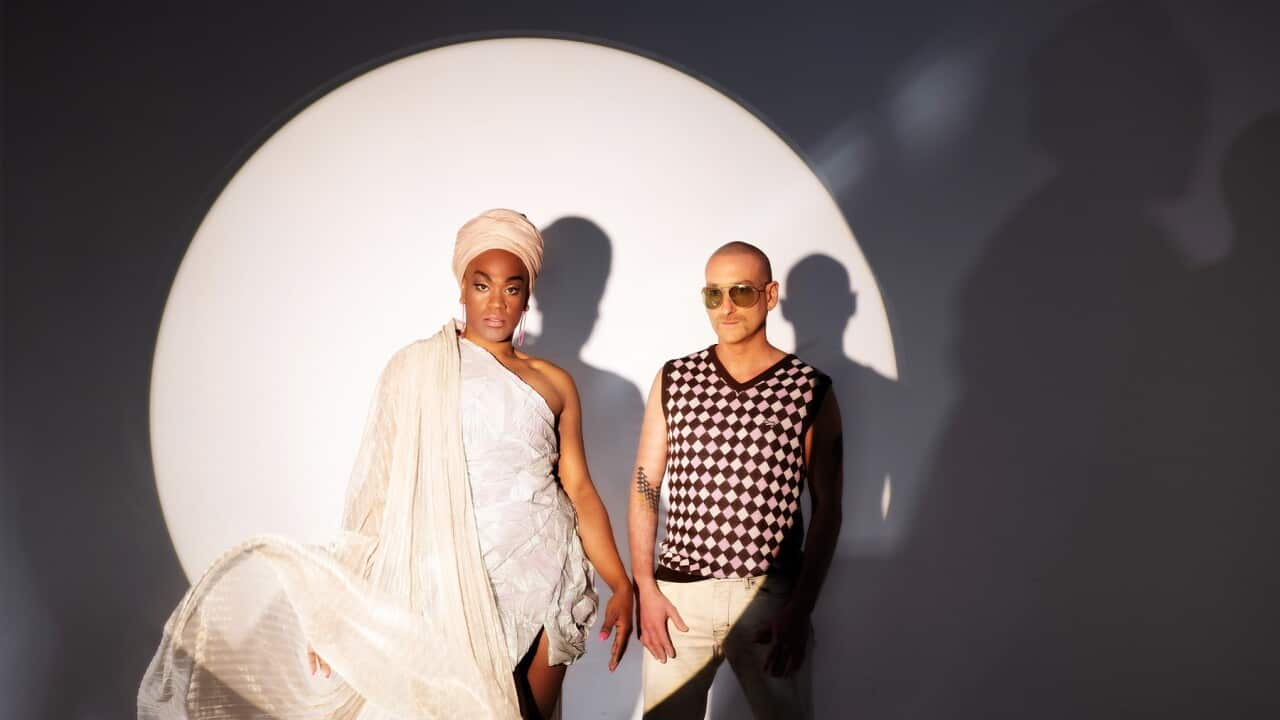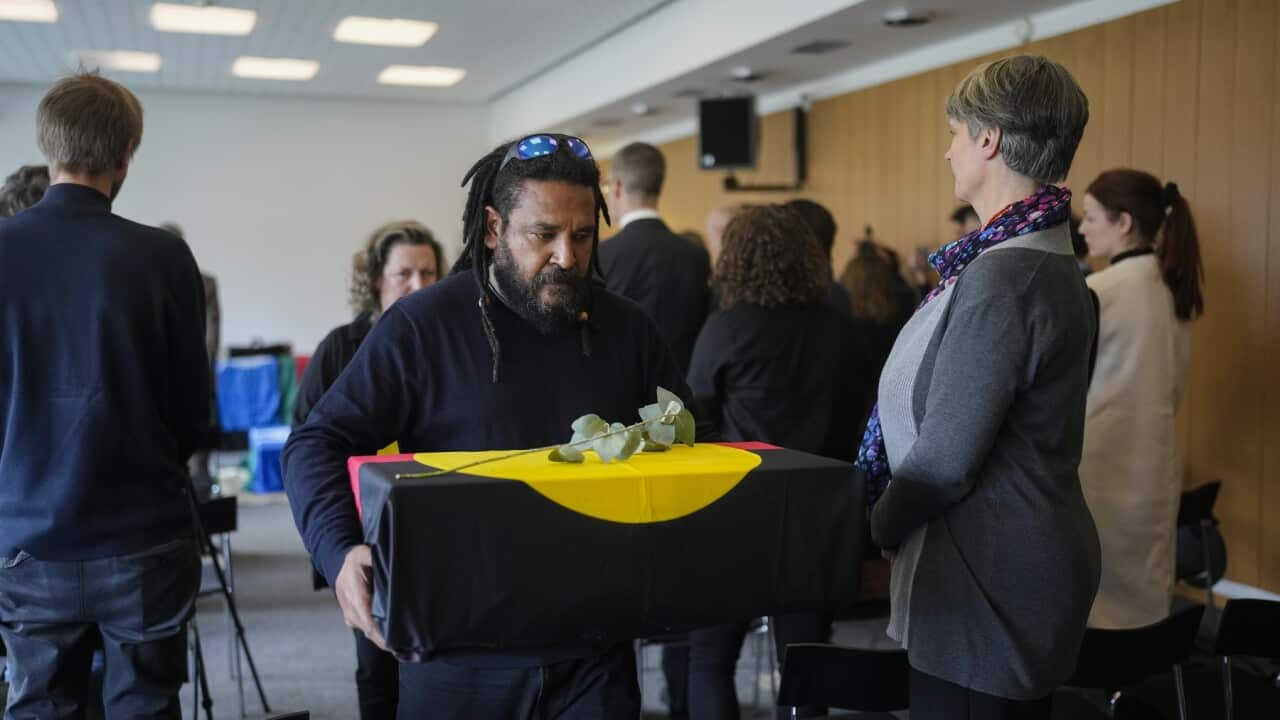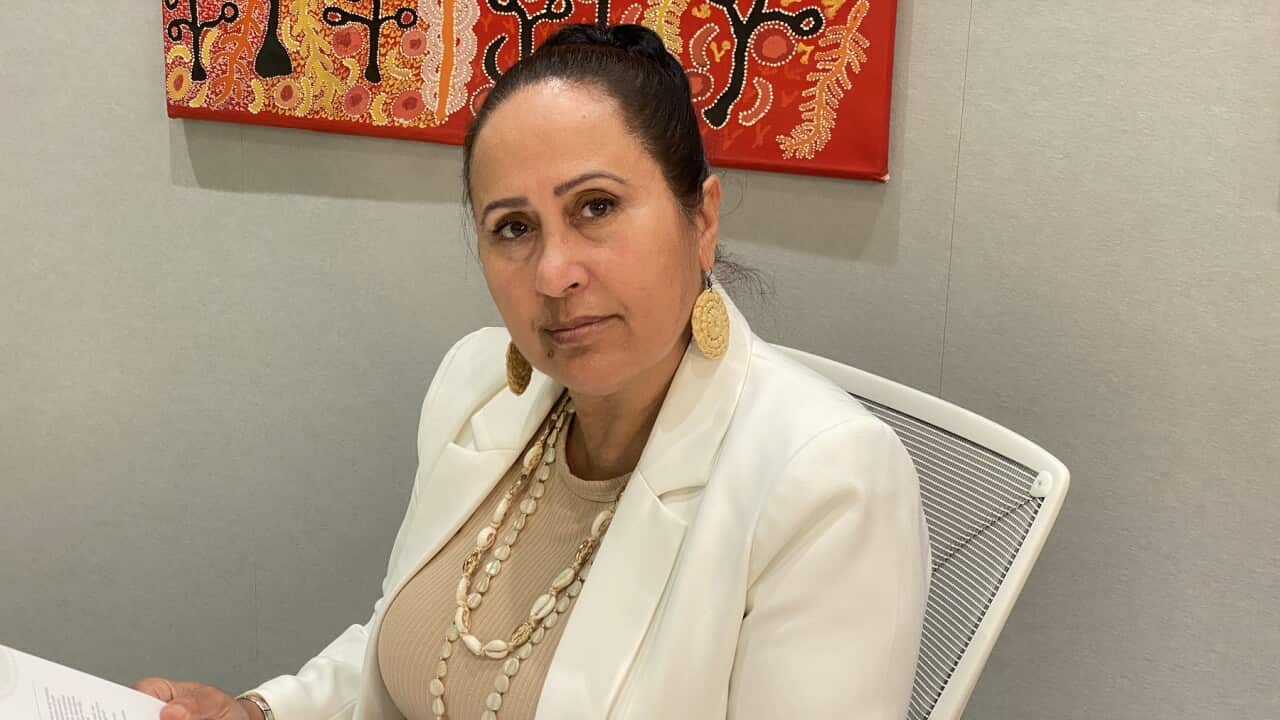TRANSCRIPT
(MUSIC)
Those are the voices of Electric Fields, the South Australian electronica and soul music duo made up of vocalist Zaachariaha Fielding and keyboard player and producer Michael Ross.
It's also a sneak peak of what's to come at this year's 2024 Eurovision song contest, with the two selected as the first duo to represent and compete for Australia.
Fans will know Zaachariaha and Michael, who also go by Z and M, are no strangers to Australia's Eurovision scene.
In 2019, they performed their song, '2000 and Whatever' for national selection competition 'Australia Decides,' and came in second, narrowly missing out on being the country's top pick for Eurovision that year.
Some viewers said they could have won the whole thing, if they had been selected.
Speaking to NITV, Michael says the loss has really given them the time to hone their craft.
"When someone comes second, it's so easy to say, 'Oh but it could have happened this way!' But really that's just peoples' way of showing their sadness when they had a different idea in their mind, but you know, there's a lot of ideas going around at once. And, on that note, I adore Kate Miller-Heidke and I think she did a brilliant job. I've got so much love for her; I'm so proud of what she did. But what it also did was give us five or six years to practice."
They've since gone on to do live television, perform at the AFL Grand Final and for New Year's Eve on Sydney Harbour.
Now, following an internal selection by SBS, they'll be taking their song 'One Mikali' to the world stage, for the 68th Edition of Eurovision.
The song, which means 'One Blood' in Yankunytjatjara is sung partly in the language of the Anangu peoples, which Zaachariaha says holds special significance.
"I think it's really important contributing our language, like it's one of the oldest languages of this country of Australia. And to, showcase it the way we will in Sweden is going to be a moment and a memory that we get to do just personally, just for our team as Electric Fields and just say that we did it. But also to have the backup of the country, seeing what this language can do and be in collaboration with the rest of the world and for it to make its mark over in Sweden, I think it's a beautiful thing. Because Australia is already like a Eurovision in and of itself, like this is a very multicultural country and I like that it is so multicultural. We get to be part of the unity of it and we also as Blackfulla's say, we've got something to contribute as well."
Australia was first invited to participate in Eurovision in 2015.
Held every year - apart from 2020 due to the pandemic - the annual song contest began in 1956, making it the world's longest running international TV competition.
With a cult following attracting around 200 million people tuning in each year, it's helped catapult the careers of stars like Celine Dion and ABBA.
It's been 50 years since ABBA won in their home country Sweden, who is hosting this year's event for the seventh time.
Viewers can vote individually up to 20 times each, but cannot vote for their own country.
Those fan votes make up 50 per cent of the decision with the other half determined by a professional jury for each participating nation.
The spirit of the contest is all about countries coming together.
But this year's event hasn't been without controversy.
Israel has agreed to revise the lyrics of its potential submission to Eurovision.
Contest organisers said verses of the song appeared to reference Hamas' October 7 attack.
Eurovision describes itself as a non-political event and can disqualify contestants that breach that rule.
The competition will begin on May the 7th (CEST, May 8 AEDT), and finish up on May the 11th.













